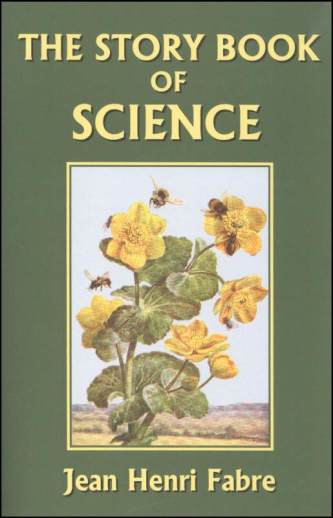We use cookies to make your experience better. To comply with the new e-Privacy directive, we need to ask for your consent to set the cookies. Learn more.
Story Book of Science
While other scientists were catching and killing insects and classifying them based on physical characteristics, the 19th-century scientist and teacher Jean Henri Fabre was a firm believer in observing insects and nature in their natural habitats, spending just as much time watching their behavior as studying their anatomy. In this delightful book, he shares his observations and knowledge with children through a series of stories in which Uncle Paul describes the wonders of nature for his nieces and nephews, Claire, Emile, and Jules. With frequent questions and interjections from the children, Uncle Paul discusses livestock, trees, metals, fibers, paper, spiders, insects, weather, clouds, steam engines, astronomy, plants, mushrooms, shells, ocean creatures, and much more. If you enjoy the Christian Liberty Nature Readers or the Handbook of Nature Study, I think you'll enjoy this one as well. Originally published in 1917 and translated from French by Florence Bicknell, this reprint from Yesterday's Classics is 438 pgs, pb. - Jess
| Product Format: | Softcover Book |
|---|---|
| Brand: | Yesterday's Classics |
| Author: | Jean Henri Fabre |
| Grades: | 4-AD |
| ISBN: | 9781599150253 |
| Length in Inches: | 9 |
| Width in Inches: | 6 |
| Height in Inches: | 1 |
| Weight in Pounds: | 1.468 |

